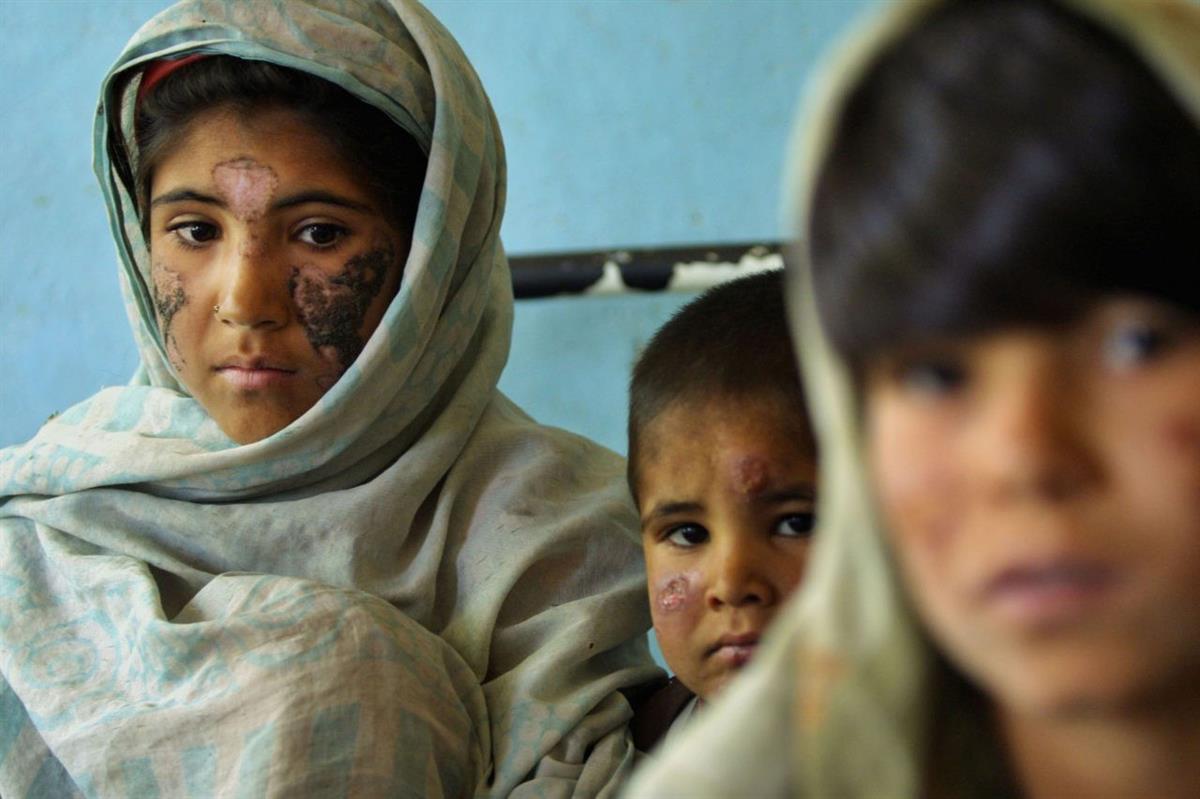Isis In Danger Of Being Wiped Out Not By Airstrikes But By Deadly Skin Disease
ISIS In Danger Of Being Wiped Out Not By Airstrikes, But By A Deadly Skin Disease. A flesh-eating parasite has caused a deadly skin disease that has been affecting the population of a Syrian city under the control of ISIS. Additionally, reports have indicated that a number of members of the terror group have also been affected by the disease.
Feb 22, 20231.2K Shares109.8K Views

ISIS In Danger Of Being Wiped Out Not By Airstrikes, But By A Deadly Skin Disease. A flesh-eating parasite has caused a deadly skin disease that has been affecting the population of a Syrian city under the control of ISIS. Additionally, reports have indicated that a number of members of the terror group have also been affected by the disease.
Attempts to stop the spread of Leishmaniasis, a skin disease, have reportedly been made, but the efforts have been hampered by ISIS fighters who are rejecting medical treatment, leading to further outbreaks. The terror group has also closed down offices of organizations working to combat the disease and confiscated their equipment.
Furthermore, the medical staff of several hospitals has fled the violence in Raqqa, which is the Syrian stronghold of ISIS, making it even more difficult to control the spread of the disease.
Initially, the medical humanitarian organization "Doctors Without Borders" (Medecins Sans Frontieres) tried to control the outbreaks of the skin disease, but due to the violence in the area, they had to leave. Local medics are now left to treat patients, but they have limited experience in treating the skin disease.
Leishmaniasisis a tropical parasitic disease that is caused by the Leishmania parasite. The disease is transmitted to humans through the bite of infected sandflies. There are two main forms of the disease: cutaneous leishmaniasis and visceral leishmaniasis. Cutaneous leishmaniasis is characterized by skin sores that can take months to heal and can leave scarring, while visceral leishmaniasis is a serious, potentially life-threatening illness that affects internal organs such as the spleen and liver.
The disease is most common in rural and impoverished areas, particularly in developing countries in Central and South America, Africa, and the Middle East. People living in or traveling to endemic areas are at risk of contracting the disease, especially if they have weakened immune systems or spend time outdoors in areas where sandflies are present.
Despite efforts by medical professionals to contain the spread of the disease, it is proving to be a difficult task. Due to the ongoing conflict in the region and the fact that ISIS has banned the entry of outside medical personnel, medical professionals are struggling to get access to the affected areas and provide the necessary treatment to those infected.
The anti-ISIS network of activists known as "Raqqa is Being Slaughtered Silently," reported that more than over 2,500 cases of the flesh-eating disease have been documented in the northeast region of Raqqa since 2014. To mitigate the spread of the disease, it is advised to use insecticide-treated bed nets during sleep. Prompt treatment of the disease during its early stages can also aid in controlling its spread.
Conclusion
In conclusion, while the spread of the deadly skin disease may be a potential blow to ISIS, it is also a reminder of the devastating effects of conflict and the importance of providing medical assistance to those in need.
Jump to
Latest Articles
Popular Articles